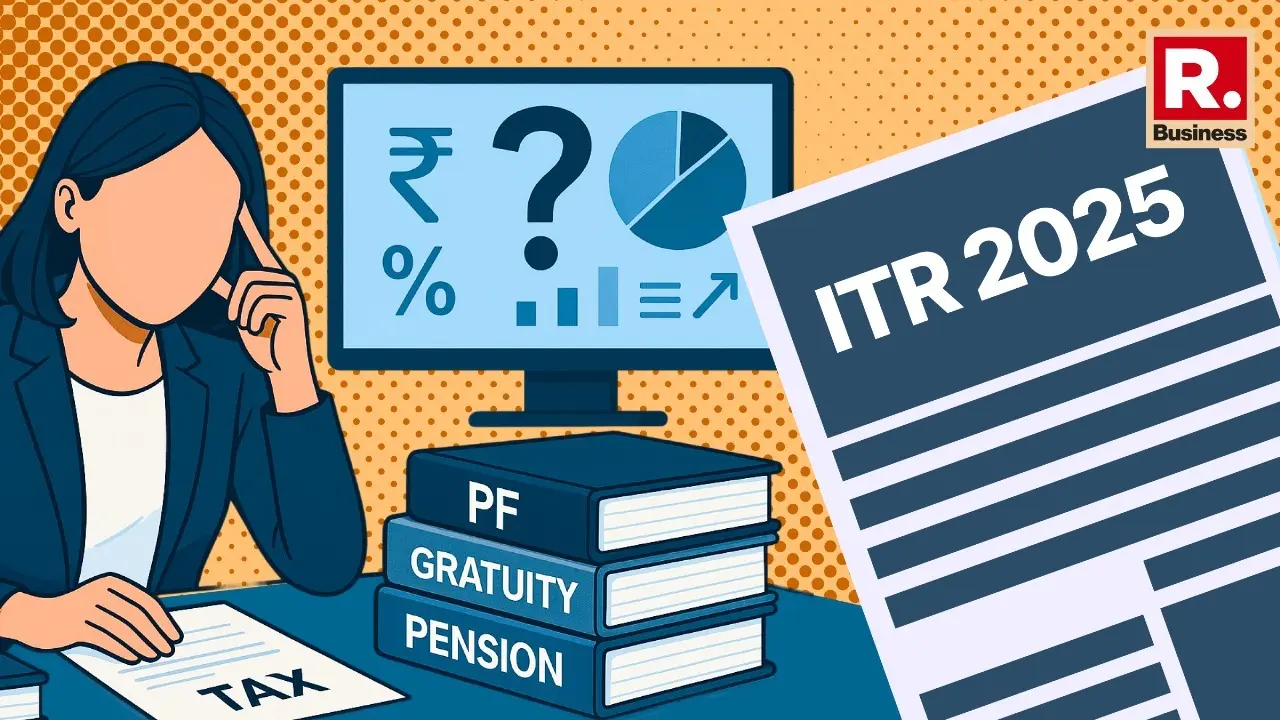Updated 28 May 2025 at 07:50 IST
ITR 2025: Are Your PF, Gratuity, and Pension Really Tax-Free? What You Need to Know
As the ITR filing deadline for FY25 approaches, many salaried individuals remain unsure about the taxability of retirement benefits like PF, gratuity, and pensions. Here's a simplified guide to help you understand what’s taxable and what’s exempt for both government and non-government employees under current income tax rules.
- Republic Business
- 3 min read

With the Income Tax Return (ITR) filing deadline of July 31, 2025, for the financial year 2024-25 (assessment year 2025-26) drawing closer, confusion continues to persist around the taxability of retirement-related benefits. Questions around whether Provident Fund (PF), gratuity, or pension are taxable still baffle many salaried taxpayers, especially those nearing retirement.
Here’s a look at what the income tax rules say about these components for both government and non-government employees:
Provident Fund (PF): When Is It Taxable?
For most salaried employees, PF is a key retirement saving instrument. However, taxability depends on factors such as duration of service, type of employer, and amount contributed.
Government Employees: PF receipts on retirement are fully exempt from tax.
Non-Government Employees: PF amounts received from a recognised PF are exempt only if the employee has served for at least 5 continuous years.
As per the Income Tax Department, “No exemption shall be available for the interest income accrued during the previous year in the recognised and statutory provident fund to the extent it relates to the contribution made by the employees over Rs 2,50,000 in the previous year.”
In cases where there is no employer contribution, interest on the employee’s own contribution exceeding Rs 5,00,000 in a financial year becomes taxable.
Read More
LIC Q4 FY25 Earnings Preview: Stock Nears Resistance Ahead of Results
Gratuity: What the Limits Say
Gratuity is another significant retirement benefit and its tax treatment differs based on the nature of employment.
Government Employees: Gratuity is fully exempt from income tax.
Non-Government Employees: Exemption is available, but subject to prescribed limits under the Income Tax Act.
Advertisement
Pension Income: Fully Taxable or Partially Exempt?
Pensions are treated as income and attract tax—though with certain relaxations based on type and conditions:
1. Uncommuted Pension (Monthly Pension):
This is treated as salary income and is fully taxable as per applicable slab rates.
2. Commuted Pension (Lump Sum):
Government Employees: The Entire amount is tax-free.
Non-Government Employees:
If gratuity is received, One-third of the commuted pension is exempt.
If gratuity is not received, One-half of the commuted pension is exempt.
3. Family Pension (To Legal Heirs):
Taxable under the head “Income from Other Sources”.
A standard deduction of Rs 15,000 or one-third of the pension received, whichever is lower, is allowed.
Advertisement
4. Standard Deduction for Pensioners:
Under the old tax regime, pensioners drawing monthly pensions are eligible for a standard deduction of Rs 50,000.
ITR 2025 Deadline
The last date to file the income tax return for FY 2024-25 is July 31, 2025. Taxpayers are advised to file returns well in advance to avoid a last-minute rush and late fees.
While government employees enjoy broader exemptions on retirement benefits, private sector employees must carefully check exemption thresholds and service requirements. It's crucial to stay updated on the latest provisions to ensure accurate and penalty-free ITR filing.
Published By : Gunjan Rajput
Published On: 27 May 2025 at 12:25 IST
